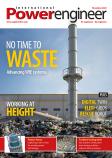Following the discovery of thousands of additional cracks in critical components of two Belgian nuclear reactors, the Director-General of the Belgian nuclear regulator of the Federal Agency for Nuclear Control called for checks on nuclear power plants worldwide.
The cracks were found in the steel nuclear reactor pressure vessels in nuclear reactors Doel 3 and Tihange 2 in Belgium.
The vessels contain highly radioactive nuclear fuel cores. The failure of these components can cause serious nuclear accidents. On February 13th, two leading material scientists announced that the pervasive and unexpected cracking could be related to corrosion from normal operation, with potential implications for reactors worldwide.
In reaction to the findings, the Director-General of the Belgian nuclear regulator of the Federal Agency for Nuclear Control (FANC), Jan Bens, has said that this could be a problem for the entire nuclear industry globally. He added that the solution is to begin the careful inspection of all 430 nuclear power plants worldwide.
Greenpeace Belgium energy campaigner, Eloi Glorieux, said: “Nuclear regulators worldwide must require reactor inspections as soon as possible, and no later than the next scheduled maintenance shutdown. If damage is discovered, the reactors must remain shut down until safety and pressure vessel integrity can be guaranteed.”
The problem was initially discovered in the summer of 2012. Both the Doel 3 and Tihange 2 reactors have been shut down since March 24th, 2014 after additional tests revealed an unexplained advanced embrittlement of the steel of the test sample. The integrity of the pressure vessel must be absolute due to the radioactive releases that would result if this component were to fail.
FANC has subsequently issued a statement confirming that the additional tests conducted in 2014 revealed 13,047 cracks in Doel 3 and 3,149 in Tihange 2. On February 15th the nuclear reactor operator, Electrabel (GDF/Suez) announced that it would be prepared to 'sacrifice' one of its reactors to conduct further destructive tests of the reactor pressure vessel in order to study this poorly understood and extremely concerning damage phenomenon.
In 2012, the operator of the reactors, Electrabel, dismissed the cracks as being the result of manufacturing problems during construction in the late 1970's in the Netherlands, but still failed to table evidence for this assumption. The Belgian regulator also stated that the most likely cause was manufacturing but could not prove it and added that it may be due to other causes.
The recent announcements of the materials scientist, whose concerns were echoed by Director-General Bens, indicate that this problem could be far beyond manufacturing. If confirmed, it means that the safety of every nuclear reactor on the planet could be significantly compromised.
There are 435 commercial nuclear reactors worldwide, with an average age of 28.5 years in mid 2014. Of these, 170 reactors (44% of the total) have been operating for 30 years or more and 39 reactors have operated for over 40 years.
As of 2015, Doel 3 has been operating for 33 years; Tihange 2 for 32 years.
















